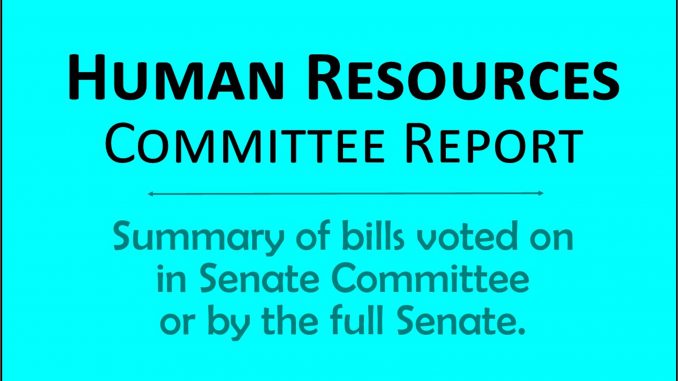
SF 75—Disclosure of mental health information
SF 285 –Psychiatric loan repayment program
HF 305—Prescribing biologic drugs
SSB 1032 – Injection authority for optometrists
SSB 1072 – Step therapy
SSB 1074—Board of Pharmacy policy bill
SSB 1075—Advanced Registered Nurse compact
SSB 1076 – Nurse licensing compact
SSB 1099—Definition of dependent adult abuse
SSB 1147—Stroke care quality improvement
FLOOR ACTION
HF 305 updates current law to enable the biological substitution. Current state law does not provide a clear path for pharmacists to substitute biological drug products. There are two kinds of drugs: chemical and biologic. The biological products differ from traditional generics. Biosimilars are not identical; they are just similar. Biologic medicines are used to treat serious and chronic diseases, including cancer and multiple sclerosis. This bill allows the pharmacist to substitute an FDA-approved interchangeable biosimilar for a prescribed originator biologic without first seeking approval from the physician. It also requires the pharmacist to communicate to the physician that the biosimilar product was dispensed. This may provide increased access to lower-cost drugs.
[3/1: 50-0]
COMMITTEE ACTION
SF 75 allows the disclosure of mental health information (without consent) to certain law enforcement officials to prevent or lessen a serious and imminent threat.
[3/1: short form]
SF 285 creates a psychiatric practitioner loan repayment program. This idea was brought forward by Iowa Association of Community Providers (IACP). It will work in areas that are not considered “shortage” areas and is complementary to other workforce programs at the Iowa Department to Public Health. It will offer up to $25,000 per year for up to four years with the agreement that they practice with a qualified provider in Iowa for at least four consecutive years.
[3/1:short form]
SSB 1032 makes changes to types of actions that can be performed by an optometrist. Under current law, optometrists can only use injections to counteract an anaphylactic reaction. The bill does not allow an optometrist to use retrobulbar injections or injections that penetrate the globe. The bill removes a prohibition on the performance of surgical procedures that require the use of injectable anesthesia. An amendment limits the use of anesthesia for only eyelid procedures used to treat cysts, chalazia (bump or nodule) and papillomas (wart-like bump).
[2/28: 9-4 (Bolkcom, Chapman, Mathis, Quirmbach “no”)
SSB 1072 relates to step therapy, which is a cost-containment tool often used by health insurance plans that requires patients to first try and fail on one or more medications not prescribed by their physician before the plan will authorize coverage for the originally prescribed medication. The bill includes policies that protect the physician-patient relationship by ensuring that step therapy protocols are developed with a clear and timely process, and giving the physician the ability to immediately override the step therapy protocol in certain cases. An amendment was adopted in committee that exempts the Medicaid Managed Care Organizations from the bill’s policies. The amendment passed on a party-line vote with Democrats voting “no.”
[2/28: short form]
SSB 1074 is a Board of Pharmacy policy bill that allows creation of a pool of alternate board members; amends the definition of practitioner; makes changes to the program to aid impaired pharmacists, interns or techs; amends the pharmaceutical collection and disposal program; and repeals all provisions regarding the registration and regulation of Internet pharmacy sites because the language is outdated and not needed.
[3/1: short form]
SSB 1075 is the Advanced Practice Registered Nurse Compact. An interstate compact is a statutory agreement between two or more states. It allows advanced practice nurses to practice in other member states, subject to each state’s practice law. It allows Iowa ARNPs to have a multi-state license.
[2/28: short form]
SSB 1076 is the Nurse Licensure Compact. It is an interstate compact. It allows a nurse to have one multistate license and practice in other member states both physically and electronically. This increases access to care while public protection is maintained. Ten states have adopted the compact so far: Arizona, Florida, Idaho, Missouri, New Hampshire, Oklahoma, South Dakota, Tennessee, Virginia and Wyoming.
[2/28: short form]
SSB 1099 is a Department of Inspections & Appeals bill. The Department of Inspections & Appeals became aware of a gap in their definition of dependent adult abuse. This adds personal degradation to that definition. Personal degradation is an act that is humiliating to another person.
[2/28: short form]
SSB 1147 is brought forward by the Heart Association to improve the overall system of stroke care. It sets up a designation system for stroke-ready hospitals and a process for suspension or revocation; encourage cooperation and collaboration between stroke-ready hospitals in the state; requires Iowa Department of Public Health to report the list of various stroke facilities by January 15 annually; establishes training and protocols; and requires an annual report of progress each September 1.
[3/1: short form]
